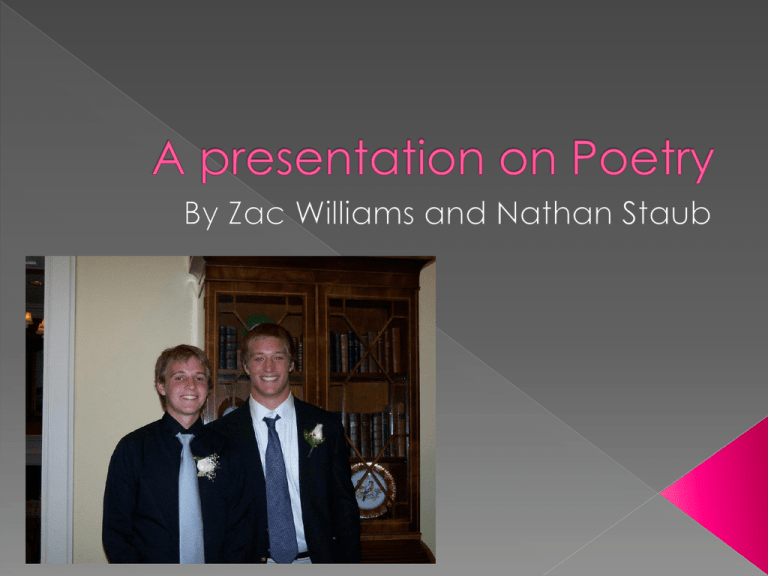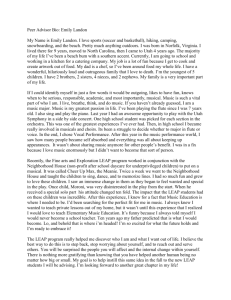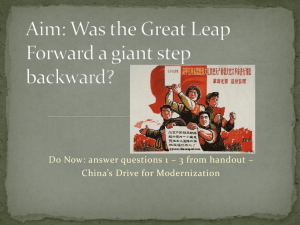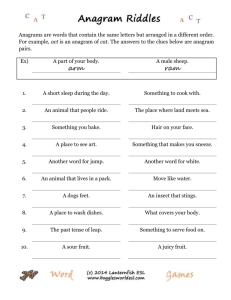A presentation on Poetry - Ms. Beach Buford High School
advertisement

• • • • • • Born on February 2, 1923, James Dickey was born in Buckhead, Georgia. Became the quarterback at Clemson, but left college in order to join the Air Force. At the age of thirty-three, Dickey moved to New York, where he was hired to write advertising copy at the prominent McCann-Ericson agency. In 1960, Dickey's first collection, Into the Stone, and Other Poems, was published, and he soon abandoned his career to devote his life to poetry. Known for his ambitious experimentation with language and syntax. Many of Dickey's poems also address humanity and violence About a girl that Dickey used to know as a child. Went to the dance with her and is reflecting back on the memory. The girl, Jane Macnaughton, committed suicide by jumping out of a hotel window. Images!!!!! › The images drive this poem. › Images of both the past and present. › Vivid images including, “running in my mind” and “Prancing foolishly as bears” › Each of the leaps in the poem represent a different aspect of life. The voice gives us insight into the thoughts of the poet. A shift occurs at the beginning of the forth stanza, from an amazement of the first leap to horror of the second. Phrases like “Slow footed yokels” show the admiration he once had for her. He was in awe because she did what the boys wouldn’t. The leap is a symbol, but each leap represents something different. The first leap shows a since of accomplishment, while the second leap shows how she is over come by the pressures of life. The narrator wants to only remember her by the first leap. The leap is extremely ironic because they are so different but both can represent the same thing. The first leap expresses freedom by showing she is capable of doing what no one else can do, the second leap shows her freedom to not be alive. Margaret Atwood was born in 1939 in Ottawa and grew up in northern Ontario, Quebec, and Toronto. She has published more than fifty volumes of poetry, children’s literature, fiction, and non-fiction. Also helped invent the “Long Pen” The speaker is one of the three Sirens of Greek mythology. The songs were so tempting to passers that anyone who heard them were attracted to the island. Lures the sailor in by making him feel special, “Only you” However once he is hooked she exclaims that it works every time. She claims that she will reveal the song to him, but the “boring” song she sings is the bait. Atwood uses humor in the syntax she chooses. “bird suit”, “squatting”, “feathery maniacs”, and “looking picturesque and mythical” These words are humorous but also are deceptive Some people argue that this poem is meant to be funny while others claim it is about women’s control over men. Men are too easy, Men are too light. sing one little song And not a one of them won’t bite Except for this one man, a cold heart named Zac. He never looked over, he never looks back He’s the bane of my existence In spite of my persistence Never fear though, For he’s only one man I can catch all the rest Like Brian McCann Soto was born in 1952 to parents of Mexican heritage. He worked as a manual laborer until he graduated from high school. Soto has written a number of poems and three novels. His works are known for their focus on the ordinary life. He lives in Northern California. Like the cat he scratches the flea camping in fur. -Simile Unlike the cat he delights in water up to his ears. – Contrast. He has befriended the kingdom of animals: He once ran with wolves but admittedly not very far, He stepped two paces into a cave and peeked at the bear. - Hyperbole Soto uses many rhetorical techniques but in focusing on those we might lose the true meaning behind his literary expression. Dogs. Soto focuses on his dog, Nelson. But, his adoration for his pet is easily personalized when the reader realizes his/her affection for a four-legged friend. “Nelson is a companion, this much we know” “If you call him, he will drop his tennis ball, Look up, and come running, This muddy friend for life. When you bring your nose To his nose for something like a kiss, You can find yourself in his eyes.” “But again, he is happiness.” Soto is a little bit artsy, Undoubtedly a Californian man But he touches on some good things And it’ll be a sad day when he kicks the can. With this dog thing, especially, I could relate Huckleberry Finn, the Eighteenth, that’s my best mate He is a little bit more manly than Nelson is described But Nelson can’t talk, maybe he lost a bribe. Huck is a pretty swell dog Just the other day he brought his first skeleton in It’s like he just got his degree, in awesomeness. He is so close to me, he about feels like kin. Yep, look at all this prideful ambling, Soto hit on something, I’m just rambling I guess dogs really do mean that much to us If I ever pull a Case I think I’d want a dog on my tour bus.


